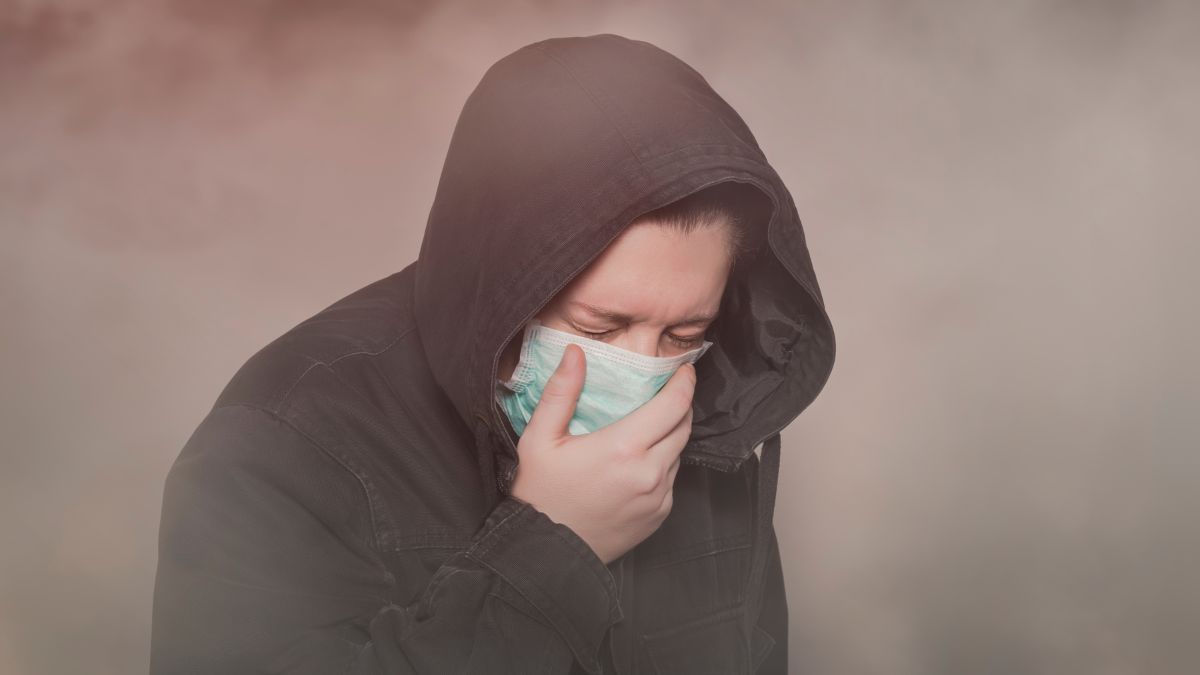- By Priyanka Munshi
- Wed, 17 Jan 2024 05:18 PM (IST)
- Source:JND
Do you know that air pollution poses significant hazards to the respiratory and cardiovascular systems, which can have a major effect on human health? Pollutants, including ozone, nitrogen dioxide, and particulate matter, can be inhaled and cause a variety of health problems, such as respiratory infections, worsening asthma attacks, and even cardiovascular disorders.
Not only that, but chronic illnesses, including lung cancer and decreased lung function, have also been connected to prolonged exposure to air pollutants. Children, the elderly, and people with pre-existing medical disorders are among the vulnerable groups that are most vulnerable.

Health Hazards Of Air Pollution From Respiratory Infections To Cardiovascular Diseases (Image Credit: Canva)
Dr. (Brig) Sarvinder Singh, who is a senior consultant in pulmonology at Yatharth Hospital in Greater Noida, exclusively told Jagran English about the impact of air pollution on health.
Also Read: 5 Times South Divas Made Heads Turn In Gorgeous Outfits | SEE PICS
According to Dr. Sarvinder, "Air pollution is a significant public health concern, with numerous adverse effects on human health. The complex mixture of pollutants present in the air, including particulate matter (PM), nitrogen dioxide (NO2), sulfur dioxide (SO2), ozone (O3), and carbon monoxide (CO), poses a range of health risks. Particulate matter, consisting of fine particles and inhalable coarse particles, can penetrate deep into the respiratory system, leading to respiratory and cardiovascular problems. PM exposure has been linked to an increased risk of respiratory infections, exacerbations of asthma, chronic bronchitis, and cardiovascular diseases. Additionally, long-term exposure to elevated levels of PM has been associated with decreased lung function and an elevated risk of developing lung cancer."
Nitrogen Dioxide:
primarily emitted from vehicular emissions and industrial activities, can irritate the respiratory system and exacerbate pre-existing respiratory conditions such as asthma. Prolonged exposure to high levels of nitrogen dioxide may contribute to the development of respiratory diseases.
Sulfur Dioxide:
As a byproduct of combustion processes in power plants and industrial facilities, it can irritate the respiratory system and exacerbate conditions such as asthma and chronic bronchitis. Ozone, a major component of photochemical smog, can cause respiratory distress, particularly in vulnerable populations such as children, the elderly, and individuals with pre-existing respiratory conditions.

Health Hazards Of Air Pollution From Respiratory Infections To Cardiovascular Diseases (Image Credit: Canva)
Carbon Monoxide:
primarily emitted from vehicle exhaust, interferes with the body's ability to transport oxygen, leading to a range of health effects, including headaches, dizziness, and, in severe cases, death.
Also Read: Top 20 Motivational And Positive Quotes For All Hardworking UPSC Students
At last, Dr. Sarvinder said, "It is essential to recognize that vulnerable populations, such as children, the elderly, and individuals with pre-existing health conditions, are more susceptible to the adverse effects of air pollution. Public health interventions, regulatory measures, and sustainable practices are imperative to mitigate the impact of air pollution on health and safeguard the well-being of communities."

